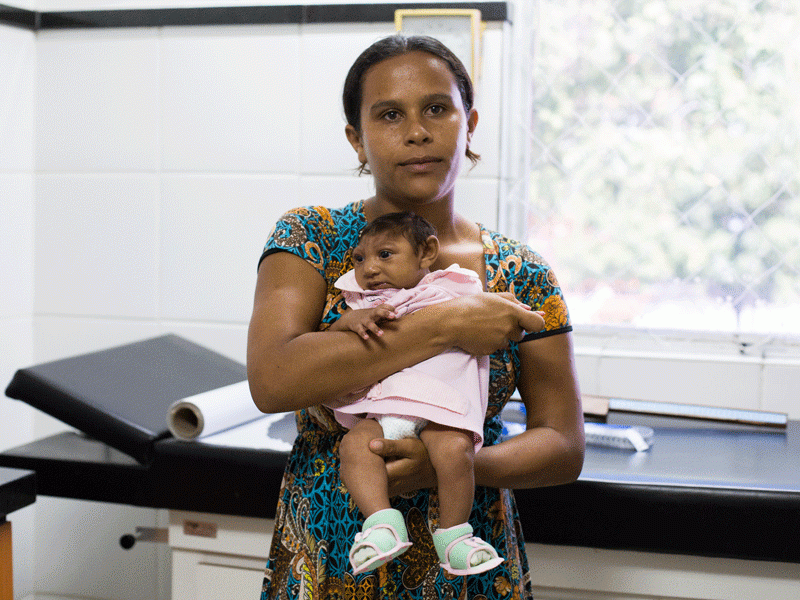Health bodies refuse to release Zika virus details

Getty
Experts have questioned the decision by public health bodies to not reveal the countries that two pregnant Australian women with the Zika virus travelled to before being infected.
On Thursday, Queensland Health reported a pregnant Australian woman infected with Zika had returned to the country after an overseas trip, while on Friday, Victoria’s health minister made a similar announcement about a woman in that state.
Zika has been linked to microcephaly in babies of infected mothers. This causes babies to be born with deformities of the head and brain defects.
While there have been numerous cases of Australians travelling home with the virus, these two incidents mark the first cases of positive tests on pregnant Australian women since the World Health Organisation (WHO) declared Zika a “public health emergency” in early February.
• Zika can be sexually transmitted: experts
• Aussie tourists urged to avoid these countries
• Australian olympic body warns of Zika virus
Public Health Association Australia (PHAA) chief executive officer Michael Moore told The New Daily that his organisation wanted information about the infections, particularly where they occurred, to be publicly released.
“People should know which countries have a prevalence of the Zika virus,” Mr Moore said.
“I think that the chief health officers will be working with the Department of Foreign Affairs and Trade to get that information out and we certainly would like to see the information made available.”
University of Adelaide public health expert Professor Lyle Palmer agreed with Mr Moore.
“I think that would actually be helpful [for those countries to be revealed],” Professor Palmer told The New Daily.
Explainer: Everything you need to know about the Zika virus
“I can see why they haven’t but it would be interesting to know more about why they haven’t.
“Releasing the countries where the pregnant women travelled to is useful as a way of alerting people that this can happen to you and you really need to be careful about travel plans at the moment.”
A Queensland Health spokesperson told The New Daily that no further information about that state’s Zika-infected woman would be released.
The spokesperson said Queensland Health “had its reasons” for that decision, and added it would not disclose the country or countries she visited in order to protect her confidentiality.
A spokesperson for Victorian Health Minister Jill Hennessy told The New Daily that Victoria would also not reveal the country to which the pregnant woman with Zika had travelled.

Aedes aegypti mosquito is the main culprit behind the spread of Zika. Photo: CDC
The Department of Foreign Affairs and Trade told The New Daily it was not the correct department to deal with questions about where the pregnant women with Zika travelled. The Department of Health did not respond to enquiries.
Country ‘might not matter’
Despite the calls from Mr Moore and Professor Palmer, Sydney University mosquito expert and medical entomologist Dr Cameron Webb said “it probably doesn’t matter” where the women had travelled.
“It most likely one of the 30 countries the Australian government has already warned against pregnant women travelling to,” Dr Webb told The New Daily.
“If it was a country that wasn’t on that list then there may have been additional warnings or more information about where the women had been released.”
It was reported on Friday that “a number” of Australian Federal Police Officers had contracted Zika after overseas postings, including in the Soloman Islands.
Zika is a mosquito-borne illness that has torn through Latin America and has been linked to 4000 birth defects in children in the region.
‘We’ll see a trickle of Zika cases in Aus’: expert

A council worker fumigates a home against Zika carrying mosquitoes in Mexico. Photo: Getty
Dr Webb said he expected to see the Zika virus be diagnosed more often in Australia in the coming months.
“It’s almost to be expected we will see a trickle of these cases now,” he said.
“It reflects that there is an increase in frequency of testing people, instead of an influx of people with the virus coming into the country.”
He pointed out that Zika had probably been under diagnosed in Australia and Asia before the start of 2016, because symptoms were mild and testing was rare.
He said it wouldn’t be surprising if the amount of Zika cases in Australia didn’t swell to 1000.
“We see more than 1000 cases of Dengue (check) trickling back into Australia every year,” Dr Webb said.
“It is very possible we could expect to see that trickle of cases with Zika virus.”
Australia well placed to prevent Zika
Public health experts said Australian authorities were adequately equipped to stop Zika from spreading in Australia.
“You can be confident that the issues are being discussed and that the appropriate measures are being put in place,” Mr Moore said.
“We have a strong precedent with Ebola and our proactive response to it will help with Zika.”
Professor Palmer said it was important that Australian authorities had heeded warnings from WHO, and that citizens and local governments at risk ensured mosquito management plans were in place.
The New Daily previously reported about a town in far-north Queensland that had been helping its residents prepare for the arrival of Zika.
Below, watch Victoria’s acting chief health officer Dr Roscoe Taylor, and Victorian Health Minister Jill Hennessy talk about the pregnant Victorian woman with Zika:









